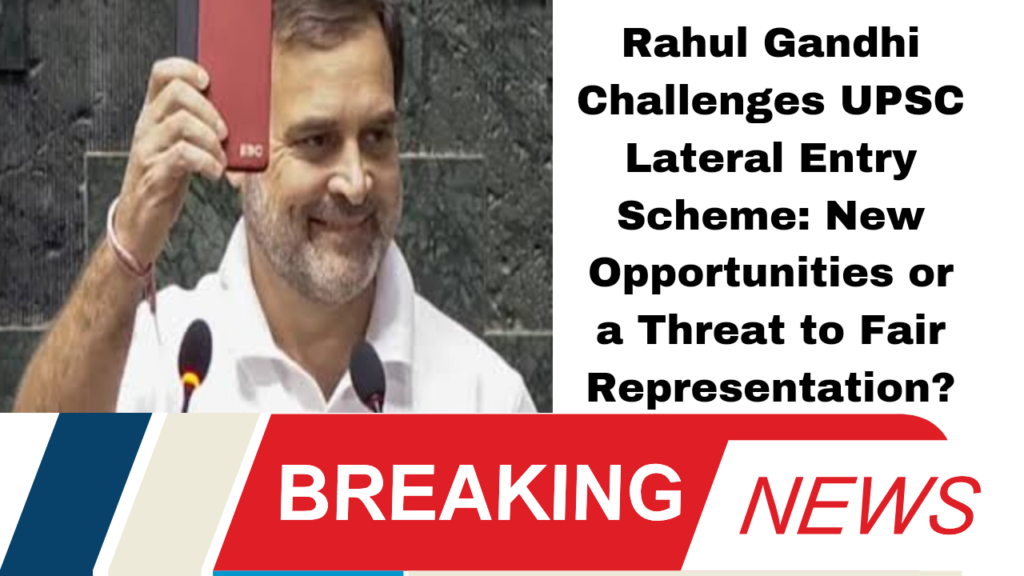The newly introduced UPSC Lateral Entry Scheme has triggered a major political uproar, with critics arguing that it jeopardizes reservation policies and the traditional integrity of civil service appointments.
Scheme Details
The Modi government’s UPSC Lateral Entry Scheme permits the direct recruitment of individuals up to 55 years old into senior bureaucratic roles such as Joint Secretary, Director, and Deputy Secretary. These positions, previously filled through UPSC exams, will now be appointed based on interviews. The roles are contract-based, with a tenure of three years.
Opposition Reactions
Congress leader Rahul Gandhi has condemned the scheme, alleging it undermines reservation policies and enables the RSS to place its affiliates in key administrative positions. Gandhi asserts that the scheme diminishes the representation of SC, ST, and OBC communities in the bureaucracy and erodes constitutional norms. He has warned that the scheme represents a broader attempt to privatize the IAS and weaken social justice mechanisms.
Congress’s Criticism
Congress President Mallikarjun Kharge has supported Gandhi’s stance, accusing the BJP of deliberately attempting to marginalize SC, ST, and OBC groups from top government positions. Kharge argues that the scheme will further disadvantage marginalized communities and undermine reservation principles.
Opposition from Other Parties
The Samajwadi Party and BSP have also voiced strong objections, claiming that the scheme facilitates the appointment of ideologically aligned individuals to influential government roles. SP leader Akhilesh Yadav has announced plans for protests to demand the scheme’s withdrawal.
Government’s Defense
The Modi administration defends the scheme as a means to introduce new talent and expertise into the bureaucracy, enhancing administrative effectiveness. The government argues that the initiative will complement existing recruitment processes and not negatively impact the representation of marginalized groups.The UPSC Lateral Entry Scheme remains a contentious issue, with significant political opposition questioning its impact on reservation policies and bureaucratic integrity. As the debate continues, the future of this reform and its implications for civil service recruitment remain under scrutiny.











More Stories
Bill Maher Critiques Biden’s “Garbage” Comment A Major Gaffe for Democrats
Texas Senate Showdown Cruz vs Allred in a Tight Race
Harris and Walz Rally in Ann Arbor Energizing Young Voters Ahead of Election